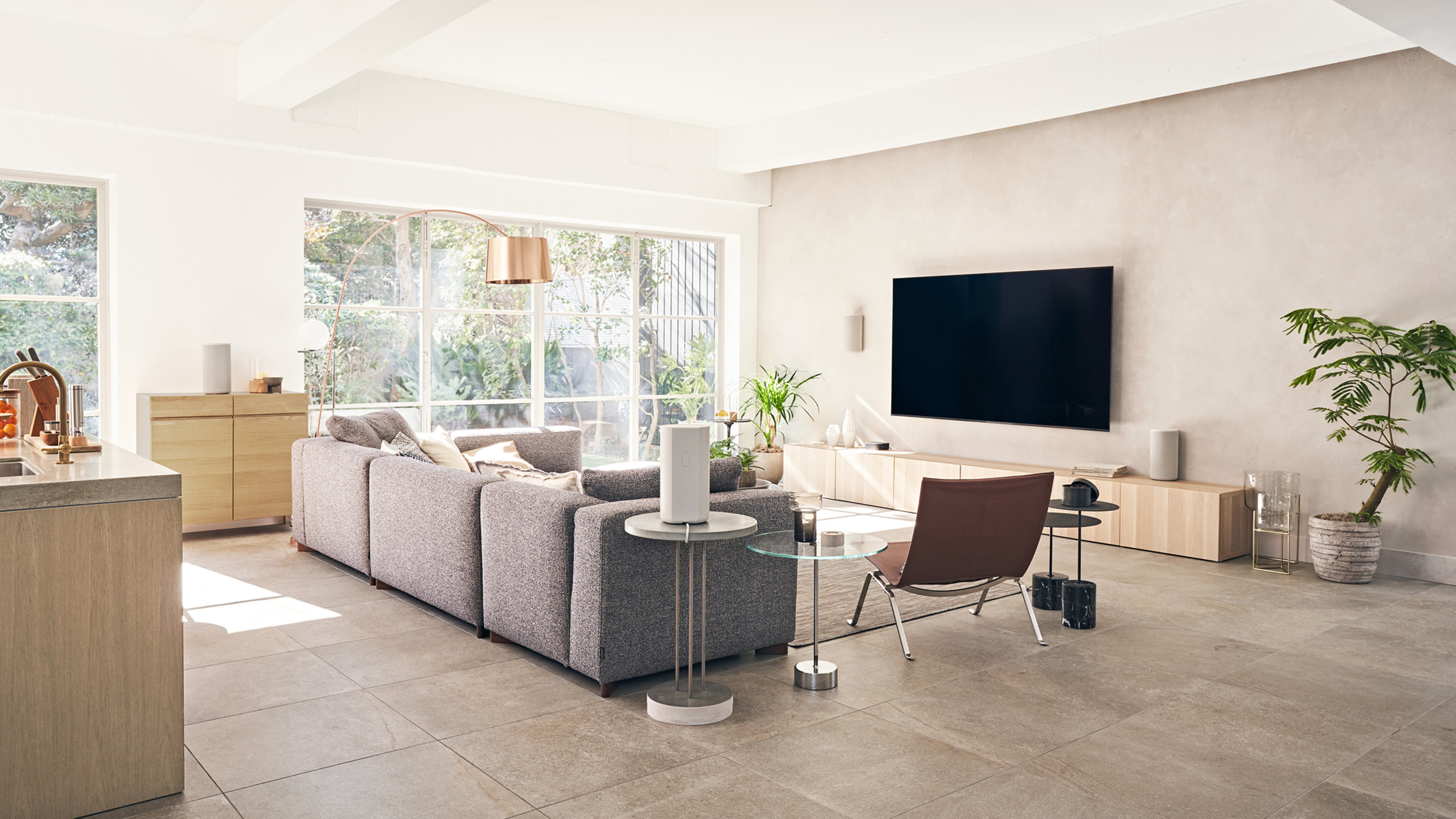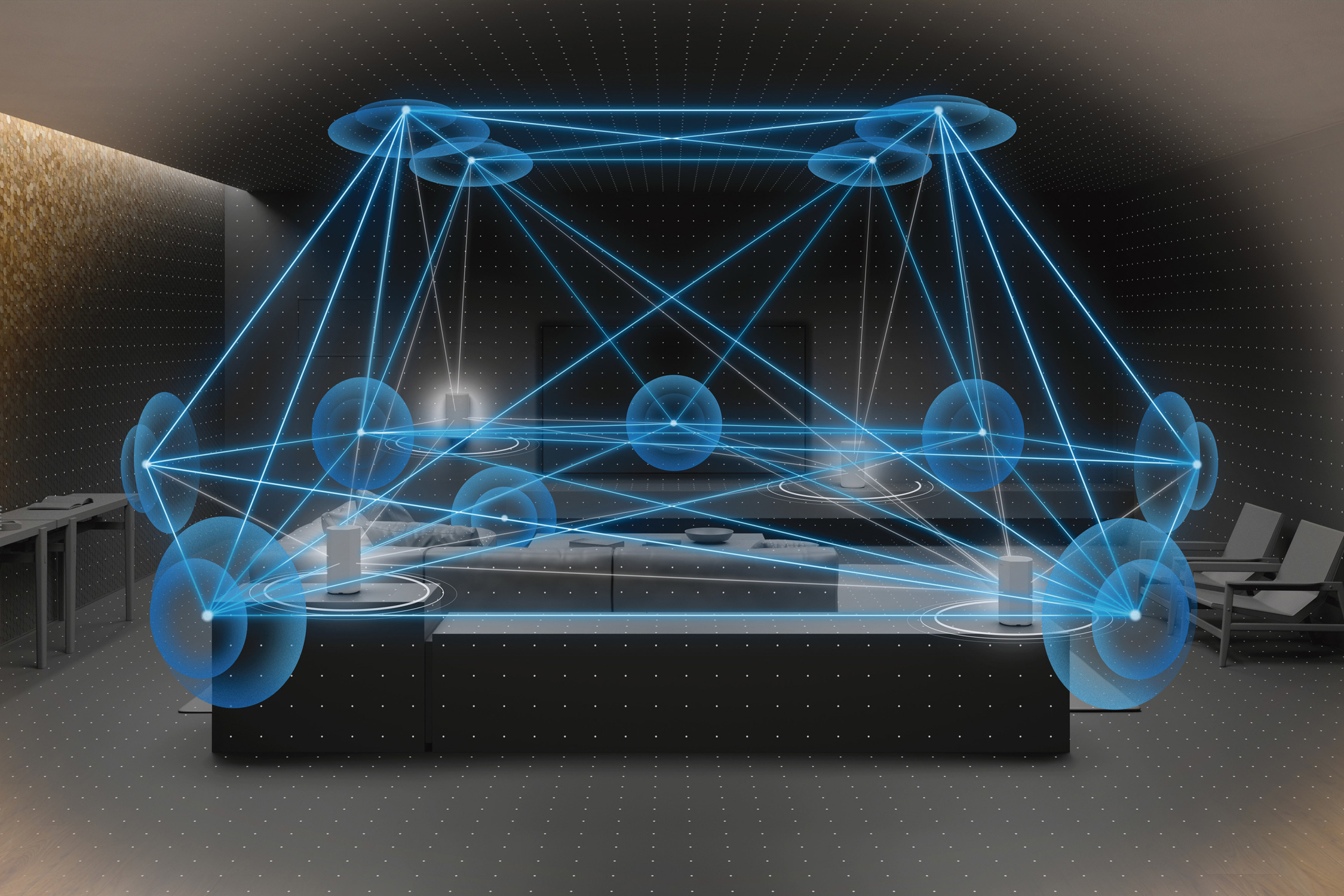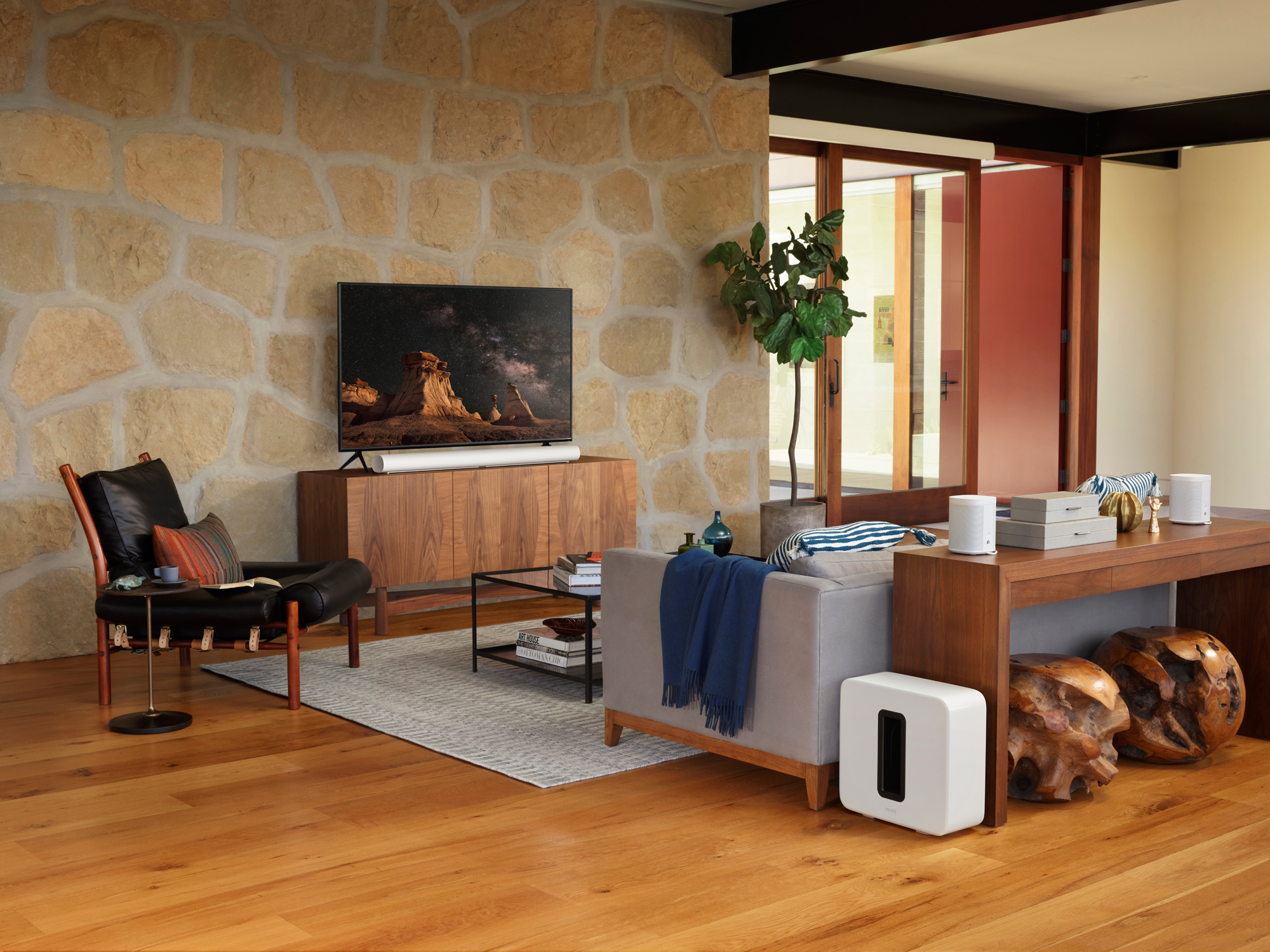What is spatial audio? A beginner's guide to more immersive sound in your home
Spatial audio is the future of sound in your home, but what is it? And how can you watch TV and films, and listen to music with three-dimensional audio?


The Livingetc newsletters are your inside source for what’s shaping interiors now - and what’s next. Discover trend forecasts, smart style ideas, and curated shopping inspiration that brings design to life. Subscribe today and stay ahead of the curve.
You are now subscribed
Your newsletter sign-up was successful
Have you heard of spatial audio? While it's given name doesn't sound particularly exciting, it's an idea that's going to revolutionize how you watch TV and films, and even listen to music at home.
Home sound systems are becoming more immersive than ever before. While you might know the concepts of pinning sounds around you from your traditional surround sound systems, new spatial technologies are elevating your living room TV, while making set-ups easier and more efficient.
It's a term you're going to be hearing more of. Not only have Apple coined the term for its Airpod sound tech, but Netflix has just announced that a number of its programmes can be enjoyed with spatial audio, without requiring a traditional surround sound set-up.
For the uninitiated, the term spatial audio doesn't mean much though. So, we've created a beginners guide to what can be referred to as immersive, 3D or spatial audio, depending on the system you choose (and who you ask), so you can understand why it's something worth investigating. .
What's different about spatial audio?
Spatial audio is, in essence, a surround sound system, and many examples of it use Dolby Atmos, an audio format designed originally for cinemas.
However, where classic surround sound set-ups have required multiple speakers on different channels, it’s now possible to recreate the effect with a much more limited set-up, sometimes just a single soundbar. Think of spatial audio like a sphere of sound rather than directional. It’s even possible to include sound from overhead without requiring a ceiling speaker, as soundbars with upfiring speakers can bounce certain sounds from the ceiling.
Netflix's version of spatial audio has been created with Sennheiser, and uses traditional stereo speakers to pin sounds, while also supporting surround sound formats such as Dolby Atmos.
The Livingetc newsletters are your inside source for what’s shaping interiors now - and what’s next. Discover trend forecasts, smart style ideas, and curated shopping inspiration that brings design to life. Subscribe today and stay ahead of the curve.
What does spatial audio sound like?
In this 'sound sphere', certain sounds can be pinned around you. That means, when someone runs past the screen in the film you’re watching, the sound can travel and make it sound like they’re running past you, in a realistic way. Likewise, when a plane flies overhead or a helicopter takes off, that sound comes from above you (if you’ve got the right set up.)

This 360 Reality Audio set-up from Sony uses multiple speakers to create the 'sound sphere'.
What can I watch with spatial audio?
The key to spatial audio is having content that has been created in the right format for this sound technology to work. The most common format is still Dolby Atmos, and you’ll find a number of (largely) films that support it on any given platform, whether it be Netflix, Amazon Prime or Disney+.
You should find a symbol indicating whether the content is Dolby Atmos compatible and you’ll likely need to stream in whatever Ultra HD format the platform has. To try Netflix's new spatial audio, you can search 'spatial audio' in the search bar, and it will suggest compatible titles. At the moment, this includes Stranger Things, The Witcher and The Adam Project.
Can I listen to music with spatial audio?
The real evolution of spatial audio comes in the form of listening to music, a new frontier for surround sound, where it has been best listened to in stereo until now. The likes of Sony 360 Reality Audio, for example, can pin different instruments around the sound sphere, making it sound like you’re sitting in the midst of an orchestra. Again, in general this requires music content that’s been recorded in a certain format to work, so only certain songs or artists may be available to listen to in spatial audio, no matter your set-up.

What do I need to create a spatial audio set-up?
Spatial audio can be added and integrated into an existing multi-speaker set-up relatively easily, but Dolby Atmos is also pretty standard these days in high-end soundbars, such as the Bose Smart Soundbar 900 or Sonos Arc.
If you’re buying a new TV, Dolby Atmos can come built-in, but to really make the most of spatial audio, you’ll want some sort of external speaker set-up.
Wireless speaker's such as the Echo Studio and Apple Homepod are compatible with Dolby Atmos, but don't have upfiring speakers. Sony's SRS-RA5000 does, however, and is compatible with Sony 360 Reality Audio content.
Spatial audio has also been adopted into headphones too. Apple’s Spatial Audio technology is what you’ll first come across if you search for the term, with its AirPods Pro and AirPods Max now capable of immersing users in this 3D soundscape when using iOS. Other headphones can still work with other spatial audio technology.

Hugh is Livingetc.com’s editor. With 8 years in the interiors industry under his belt, he has the nose for what people want to know about re-decorating their homes. He prides himself as an expert trend forecaster, visiting design fairs, showrooms and keeping an eye out for emerging designers to hone his eye. He joined Livingetc back in 2022 as a content editor, as a long-time reader of the print magazine, before becoming its online editor. Hugh has previously spent time as an editor for a kitchen and bathroom magazine, and has written for “hands-on” home brands such as Homebuilding & Renovating and Grand Designs magazine, so his knowledge of what it takes to create a home goes beyond the surface, too. Though not a trained interior designer, Hugh has cut his design teeth by managing several major interior design projects to date, each for private clients. He's also a keen DIYer — he's done everything from laying his own patio and building an integrated cooker hood from scratch, to undertaking plenty of creative IKEA hacks to help achieve the luxurious look he loves in design, when his budget doesn't always stretch that far.